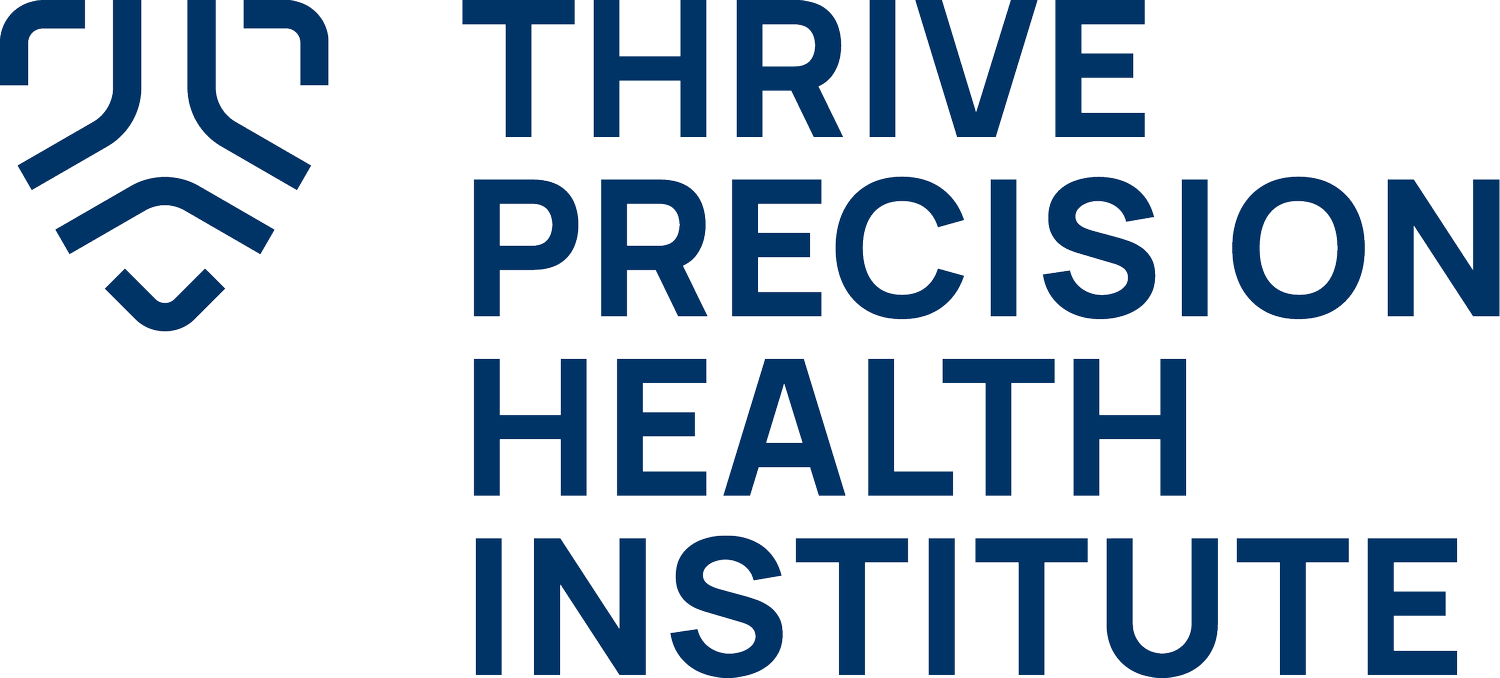Novel treatment protocols
Investing boldly across critical challenges.
Overview
.png)
Novel treatment protocols
The Thrive Precision Health Institute is pioneering accessible diabetes treatment solutions, particularly focusing on novel, cost-effective protocols like Focused Insulin Therapy (FIT). These treatments are designed to be easily implemented and scalable, aiming to revolutionize diabetes care by significantly slowing the disease's progression, especially in underserved communities. Through rigorous scientific validation and global collaboration, the institute's efforts are directed toward democratizing access to advanced diabetes treatments, thus addressing the global pandemic of diabetes with a strategic and compassionate approach.
State of Affairs:
Novel treatment protocols to slow the progression of diabetes.
Type 2 diabetes has emerged as a formidable public health challenge across the globe, affecting millions of individuals irrespective of geography, age, or economic status. Characterized by the body's inability to effectively use insulin, this chronic condition leads to elevated blood sugar levels, posing serious health risks and complications. Despite advancements in medical science, the prevalence of type 2 diabetes continues to soar, fueled by factors such as urbanization, lifestyle changes, and aging populations. The disease not only diminishes the quality of life for those affected but also places a significant burden on healthcare systems worldwide. Complications arising from poorly managed diabetes—such as amputation, kidney failure, heart disease, and blindness—are not just potential outcomes; they are stark realities for many, leading to increased mortality rates and reduced life expectancy.
The disparity in access to life-saving treatments and interventions is particularly pronounced in underserved and low-income populations, where the burden of Type 2 diabetes is disproportionately heavy. In these communities, factors such as lack of awareness, inadequate healthcare infrastructure, and financial constraints complicate the battle against diabetes. The result is a vicious cycle where the absence of early detection, effective management, and education leads to severe complications and premature death. The tragic irony lies in the fact that, while existing treatment protocols and lifestyle interventions have the potential to significantly slow the progression of the disease or even reverse it in some cases, those who stand to benefit the most are often the least able to access them. The high mortality rates associated with diabetes-related complications in these populations underscore the urgent need for a concerted, global effort to bridge the gap in diabetes care and to ensure that advancements in treatment are accessible to all, regardless of socio-economic status.
Institute Overview – Pioneering Accessible Diabetes Treatment Solutions:
Novel treatment protocols to slow the progression of diabetes.
At the forefront of our mission, the Thrive Prevision Health Institute is dedicated to revolutionizing the treatment landscape for type 2 diabetes, particularly focusing on the development and validation of low-cost yet highly effective treatment protocols. Our approach is anchored in harnessing cutting-edge research and scientific capabilities, in collaboration with Universities and a cadre of world-renowned researchers. A cornerstone of our strategy is the exploration of innovative treatments such as pulsatile insulin therapy, which more closely mimics the body's natural insulin delivery mechanisms, among other promising interventions. These initiatives are meticulously designed to meet stringent criteria, ensuring that they are not only cost-effective but also simple to implement on a large scale, making them accessible to even the most impoverished communities worldwide.
To achieve this ambitious goal, we are committed to establishing a rigorous framework for scientific inquiry and validation. This involves setting up an Institutional Review Board (IRB), officially registering our studies, and conducting clinical trials that adhere to the highest standards of scientific integrity. By putting the science first and ensuring that our findings undergo thorough peer review, we aim to build a robust evidence base for our treatment protocols. Once validated, we plan to open-source these protocols, offering a blueprint for global health organizations and governments to adopt and adapt. Funded through the generous support of our donors, our institute is not just tackling a disease; we are taking a bold stand against a global pandemic. It's a massive undertaking, driven by our unwavering commitment to making a tangible difference in the lives of millions. By democratizing access to effective diabetes treatment, we believe we can significantly slow the progression of this global health crisis, living up to our mandate to better the world through innovation and compassion.
Why we support the work:
Understanding the profound impact of type 2 diabetes on individuals, families, and broader communities is at the heart of our support for ground breaking diabetes research and treatment development. The progression of type 2 diabetes not only heralds a stark decline in the quality of life for patients but also carries with it a mortality rate that increases significantly in the disease's advanced stages. Individuals afflicted with diabetes face a myriad of complications, including the risk of amputation, kidney failure, heart disease, and blindness, which not only diminish their ability to lead fulfilling lives but also place a heavy emotional and physical burden on their families and friends. The insidious nature of this disease, marked by a slow and painful deterioration, creates a ripple effect of suffering that extends beyond the patients themselves, profoundly affecting those who care for and support them. This terrible decline in life quality underscores the critical need for our work, driving us to pursue solutions that can arrest or even reverse the disease's progression.
Beyond the personal tragedies that unfold with each case of type 2 diabetes, the economic implications are staggering. The cost of managing diabetes, from ongoing medical care to emergency treatments for acute complications, can devastate family finances, leading to bankruptcy and severe socioeconomic consequences. This financial strain is compounded by the loss of income due to the patient's reduced ability to work, creating a vicious cycle of hardship and despair. Furthermore, the cumulative financial burden on healthcare systems worldwide is unsustainable, diverting resources from other critical areas of health and wellness. By supporting the development of accessible, cost-effective treatment protocols, we aim not only to alleviate the personal and financial suffering caused by type 2 diabetes but also to lift the economic burden that this disease places on healthcare systems and societies at large. Our commitment to this cause is fueled by the conviction that through innovation, collaboration, and compassion, we can transform the lives of millions, offering hope and a path to recovery for those affected by this global health crisis.
What we are doing:
in the pursuit of revolutionizing the treatment of diabetic complications, particularly those leading to lower limb amputations, our institute is spearheading a ground-breaking initiative to validate the efficacy of the Focused Insulin Therapy (FIT) Protocol, especially when combined with amniotic skin grafts in the care of diabetic ulcers. This innovative approach leverages pulsatile insulin IV therapy, which mimics the body's natural insulin secretion rhythms, potentially enhancing the healing process of chronic wounds—a common and debilitating complication of diabetes. Our clinical studies are designed to rigorously assess the potential of FIT to expedite the healing of diabetic ulcers, thereby preventing the progression to more severe outcomes, such as amputation.Central to our strategy is the deployment of this protocol across a diverse network of wound care and diabetes-focused clinics worldwide. We are not just providing the necessary technology platform for meticulous patient data collection; we are also establishing a comprehensive clinical workflow and standardized procedures to ensure consistency and reliability in treatment application across all participating clinics. This global network forms the backbone of our research, facilitating a robust data gathering and analysis phase that is essential for the validation of the FIT Protocol. By engaging multiple clinics across various countries, we aim to accommodate a wide range of cultural nuances, healthcare delivery models, and clinical practices, ensuring the universal applicability and scalability of our treatment protocols.
Our vision extends beyond mere clinical trials; we are orchestrating a global task force of the brightest minds in medicine, healthcare, and research, all united by a common goal to mitigate the devastating impact of diabetes on individuals' lives worldwide. This collaboration involves numerous principal investigators and healthcare providers, each bringing their expertise and insights to refine and validate the FIT Protocol. By fostering a collaborative environment that transcends geographical and disciplinary boundaries, we are laying the groundwork for a treatment paradigm that can be adapted and implemented in any country, ensuring that healthcare providers are well-equipped to deliver this innovative care. Through this concerted effort, we aim to establish a new standard in diabetic wound care, significantly reducing the risk of amputation and improving quality of life for patients globally.
Funding Priorities: Laying the Groundwork for Revolutionary Diabetes Wound Care
Our initial funding priorities are meticulously aligned with the ambitious goal of validating and scaling an innovative treatment protocol that promises to transform the care of diabetic ulcers and significantly reduce the risk of amputation. The journey begins with the establishment of pilot clinics in strategic locations—Arizona and Hawaii—chosen for their diverse patient demographics and healthcare delivery challenges. These pilot sites will serve as the blueprint for subsequent expansion across the United States and, eventually, on a global scale.
The cornerstone of our funding priorities is the comprehensive setup of each clinic to participate in this ground breaking study. This includes the initial outlay for training healthcare professionals in the FIT Protocol and the application of amniotic skin grafts, installing advanced technology platforms for precise patient data collection, and ensuring the clinical workflow is optimized for the rigorous demands of the study. A significant portion of our resources will be allocated to recruiting up to 150 patients per site who are facing advanced diabetic wound complications. These patients will be divided into cohorts to compare the efficacy of the FIT Protocol with and without the use of amniotic skin grafts, providing critical data on the best course of treatment.
To facilitate this pioneering work, our funding will also support the completion of the first external Institutional Review Board (IRB) application for the FIT with Wound Care study, a crucial step in ensuring ethical and regulatory compliance. As we navigate the complexities of bringing this innovative treatment to the forefront of diabetes care, our financial strategy is designed to underwrite the costs associated with this rigorous scientific inquiry. By prioritizing funding for the initial setup, training, technology, and patient recruitment, we are laying a solid foundation for a research endeavor that has the potential to offer life-changing benefits to diabetic patients worldwide. The success of this initiative hinges not only on the scientific and clinical milestones we aim to achieve but also on the generous support of our donors and partners, who share our vision for a world where the devastating impact of diabetic ulcers can be significantly mitigated.
How we evaluate success:
Upon completion of the Institutional Review Board (IRB) process and approval for our prospective randomized study, defining and evaluating the success of the clinical study involving the Focused Insulin Therapy (FIT) Protocol alongside amniotic skin grafts for diabetic wound care involves setting clear, measurable Key Performance Indicators (KPIs) )orOR Primary and secondary outcomes . These KPIs should align with both the short-term objectives of the clinical trials and the long-term goals of improving patient outcomes, advancing medical knowledge, and informing clinical practice. Here are several KPIs to consider:
- Patient Recruitment Rate: Measures the efficiency and effectiveness of the recruitment process by tracking the number of patients enrolled in the study against the target. A high recruitment rate indicates successful outreach and engagement strategies.
- Protocol Adherence Rate: Assesses the extent to which the study protocol is followed by participating clinics and patients. High adherence rates are crucial for the validity of the study results.
- Incidence of Adverse Events: Monitors the safety of the treatment by recording the frequency and severity of adverse events among participants. Lower incidence rates suggest a safer treatment protocol.
- Healing Rate of Diabetic Ulcers: Tracks the percentage of ulcers that significantly heal or completely close within a predetermined time frame. This is a direct measure of the treatment's efficacy.
- Time to Ulcer Healing: Measures the average time taken for ulcers to heal among the study participants. A shorter healing time indicates a more effective treatment protocol.
- Rate of Amputation Prevention: Compares the incidence of amputations in the study cohort with historical data or a control group not receiving the FIT Protocol and amniotic skin grafts. Reduction in amputation rates signifies a successful outcome.
- Patient Satisfaction and Quality of Life Scores: Utilizes validated questionnaires to assess patient satisfaction with the treatment and its impact on their quality of life. Higher scores indicate a positive patient experience and treatment impact.
- Cost-Effectiveness Analysis: Evaluates the economic viability of the treatment by comparing the costs of the FIT Protocol and amniotic skin graft treatment against the standard care, considering both direct medical costs and indirect costs like lost productivity.
- Scalability and Adoption Rate: After the study, track the rate at which other clinics or healthcare providers adopt the validated protocol. This indicates the protocol's practicality and acceptance in broader clinical practice.
- Publication and Citation Metrics: Measures the impact of research findings on the scientific community by tracking the number of publications resulting from the study and the citations those publications receive.
Defining success through these KPIs provides a comprehensive framework for evaluating the effectiveness, safety, patient acceptance, and financial feasibility of the innovative treatment protocols being tested. This approach ensures that the study's outcomes can inform clinical decisions, policy-making, and future research directions in diabetic wound care.
Our Team
Values capture what is most important to an organization. MacArthur’s core values are deeply ingrained principles that embody who we are, what we stand for, and how we work.
Our values represent a core set of beliefs that guide how our organization conducts itself and builds trust-based relationships with partners and grantees. Our values guide our decisions, behaviors, and reflect how we seek to serve our communities and work together to create a more just, verdant, and peaceful world.
We live our mission through the Just Imperative, which charges us to lead with a commitment to justice.

Dr. Robert Bouvier

Ky H. Le

Open
.png)
Jonathan Lakey

TBD

